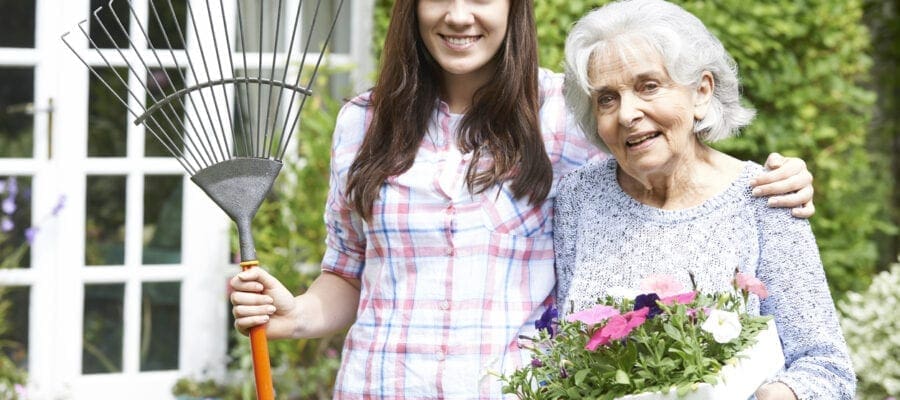From improving our immune system to encouraging us to live in the moment, everyday gardening tasks can have a surprisingly positive impact.
The team behind garden retailer GardenBuildingsDirect.co.uk have compiled a list of 10 reasons why more people should take up gardening this spring and summer.
As well as being a fun and effective form of exercise, gardening has also been proven to provide some much-needed stress relief and act as a natural form of therapy.
It’s also a great opportunity for gardeners to release any anger or frustration in a safe and productive way, while helping us to feel more in tune with the seasonal changes and to live in the moment.
A spokesperson for GardenBuildingsDirect.co.uk said: “Nothing beats breathing in fresh air and enjoying the great outdoors – even if it is just the humble patch of garden space at the back of your house.
“The benefits of gardening are countless, but we’ve picked out the best ones to try and get people up and outside when the weather begins to pick up this spring.”
Here are 10 reasons why gardening is good for you:
Stress relief
In a study conducted in the Netherlands, two groups of students were told to either read indoors or garden for 30 minutes after completing a stressful task and surprisingly, the group that took to the garden exhibited lower levels of cortisol, the stress hormone, than those that stayed inside to read. So, trading your BlackBerry for a blackberry bush might be the perfect way to fight stress.
Flower power
In our increasingly urbanised and technologically driven world, being surrounded by flowers and reconnecting with nature is a natural way of moderating your moods. Studies have found that spending time in green spaces helps people to relax, and it has an immediate impact on happiness and a long-term positive effect on moods too.
Immune system
While you’re outdoors basking in the sun, you’ll also soak up plenty of vitamin D, which helps the body absorb calcium. In turn, calcium helps keep your bones strong and your immune system healthy.
Responsibility
Having a living thing to care for gives us a responsibility which could be beneficial for people suffering with mental health issues, as it gives them purpose and a sense of worth.
Exercise
A three to four-hour gardening session can burn as many calories as an hour at the gym! This will help to release endorphins – the ‘happy hormone’ – which makes people feel satisfied and relaxed.
Natural therapy
When your mind is focused on the gardening task at hand – whether that’s repotting, chopping, weeding or watering – you won’t be worrying about bills, work, or the everyday stresses of life.
Live in the moment
Being in and around the ever-changing cycle of nature helps us to appreciate the everyday and focus on the ‘now’. Gardening helps us to feel more in tune with the seasonal changes, as the garden develops with each passing week. You may have a looming deadline at work, but the startling beauty of a freshly blooming peony will only be there to appreciate for a short time, so make the most of it.
Vent anger and aggression
Some of the therapeutic power of gardening is that it allows us to unleash our anger and aggression as well as providing an opportunity to nurture. Bad day at work? Grab a shovel and get digging. Or better yet, pick up the garden shears and take it out on those brambles hiding in the hedge. The great thing about destructiveness in the garden is that it’s also connected to renewal and growth – if you don’t cut back the plants, your space will be swamped by them, so hack away!
Communication
If you spend lots of time in the garden, you can develop your sensory system – all the colours, aromas and textures can develop your sight, smell, touch and hearing reflexes. This makes gardening especially suitable for young children as it helps develop their senses and imagination.
If you use your garden to grow and harvest fresh fruit, herbs and vegetables, your gut will benefit from eating foods that are higher in nutrients than the ones that may have travelled hundreds of miles to get to your local supermarket and on your plate.





